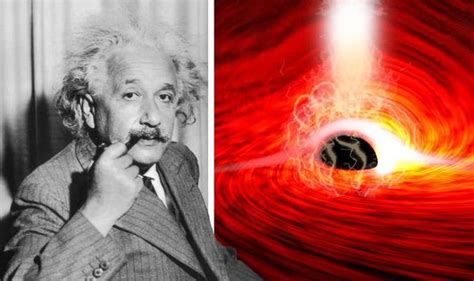Albert Einstein’s resistance to the idea of black holes is a widely discussed topic in the scientific community. It reveals the challenges scientists face when grappling with theories that seem to defy common logic. Einstein, one of the most brilliant minds, found difficulty in accepting black holes, a concept that proposed regions of space where gravity becomes infinitely strong, creating a singularity. This was not due to ignorance but rather a deep sense of rational skepticism. Even today, black holes are a subject of intense scrutiny and debate among physicists. The concerns revolve around the mathematical infinity at the core of black holes, which many see as unphysical and indicative of a flaw in our current models.
Commenters often engage in discussions about the validity and interpretation of black holes. One commenter, jerf, highlights a critical issue: while we have substantial evidence that black holes exist and behave in specific ways externally, the insides remain mysterious. This skepticism isn’t unfounded. We are still waiting for a complete theory of quantum gravity to reconcile the general relativity approach with quantum mechanics. The quest for understanding what happens at the singularity challenges our foundational principles in physics. This skepticism echoes Einstein’s own, underscoring the importance of maintaining a critical perspective on theories that confront us with the extremes of nature.
There’s also an interesting dialogue on whether singularities are physical or merely mathematical artifacts. Atombender and hparadiz discuss this in-depth, suggesting that singularities might serve as placeholders for our current lack of understanding. They argue that what we call a singularity in mathematics could, in reality, be a region where our known laws of physics break down and a revised model is required. Penrose and Hawking, mentioned for their foundational work on black holes, also believed in the possibility of these singularities being an indicator of the limitations of our mathematical models rather than actual physical phenomena.
Commenter db48x raises an essential point about the assumptions used in the mathematics of black holes. Simplifying assumptions, such as spherically symmetrical masses and static systems, were pivotal in developing our current understanding but might not fully represent reality. Schwarzschild’s solution, one of the first exact solutions to Einstein’s field equations, revealed singularities both at the origin and at a certain radius, interpreted as the event horizon. While we have since refined these assumptions, the essential issue of singularities remains unresolved, highlighting the complexities and the need for further advancements in theoretical physics.
The overarching theme in these discussions is that skepticism and scientific inquiry often go hand in hand. Einstein’s reluctance and the present-day debates about black holes exemplify the nature of scientific progress. Scientists must strike a balance between skepticism and open-mindedness. This balance ensures that theories are rigorously tested and only the most robust and evidence-backed ideas are accepted. As we continue to explore the universe, it’s crucial to remain critical yet open to new, sometimes counter-intuitive, ideas. In doing so, we honor the legacy of great minds like Einstein, who questioned and pushed the boundaries of our understanding in the pursuit of truth.


Leave a Reply